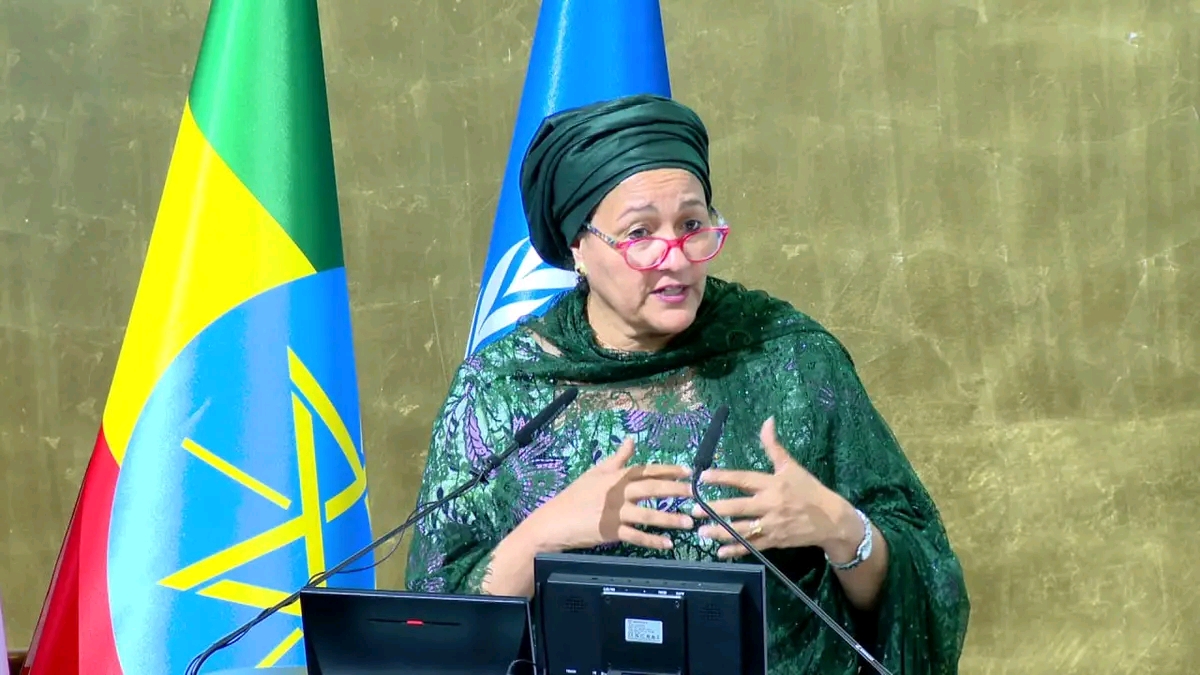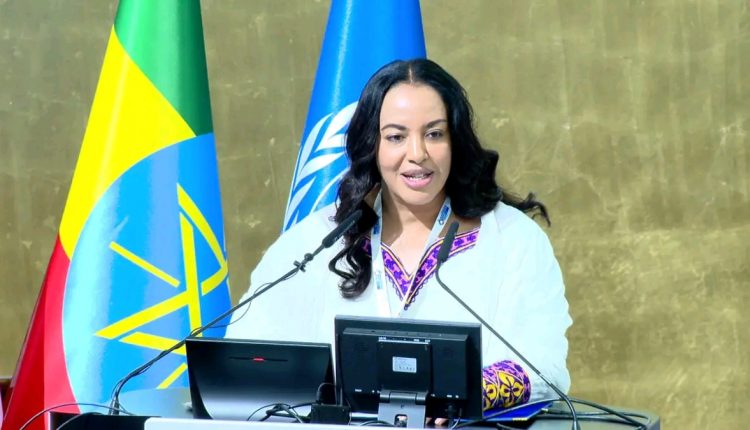Youth Engagement Key to Shaping the Future of Global FoodSecurity: Ethiopian Minister
Addis Ababa, July 27, 2025 (FMC) — The future of the global food system depends on the involvement of youth,” Ethiopia’s Minister of Women and Social Affairs.
A high-level panel discussion was recently held under the theme “Young People as Change-makers: How Art and Creativity Are Driving Change and Sustainable Food Systems.”
The event brought together dynamic youth changemakers from across the globe, spotlighting the critical role that young people play in reshaping food systems through innovation, art, and community engagement.
Among the distinguished speakers was Amina J. Mohammed, Deputy Secretary-General of the UN, who delivered a compelling message emphasizing the importance of moving from policy formulation to actionable implementation.
“We often get stuck at the implementation phase,” she noted, adding that “We have the policies, but it is action that moves us forward.”
She stressed the urgent need for attractive and enabling policies that can inspire and empower youth to drive real change.

Deputy Secretary-General shared a personal observation from her recent visit to Ethiopia, where she was deeply impressed by the country’s school feeding program.
“I visited the Ethiopian school feeding system,” she recounted. “I wonder who created the menu. It is very much nutritious.”
She further highlighted the innovative efforts being made at the grassroots level to ensure nutrition, food security, and student engagement.
On her part, Ergoge Tesfaye (PhD.), Ethiopia’s Minister of Women and Social Affairs. She underscored the centrality of youth involvement in achieving sustainable food systems.
“The future of the global food system depends on the involvement of youth,” she stated.
The minister explained that agriculture remains the backbone of Ethiopia’s economy, contributing one-third of the national GDP.
Moreover, she noted that 35% of youth employment in the country is linked to the agricultural sector. This, she said, places young people at the heart of Ethiopia’s food system transformation efforts.
The Minister also shared Ethiopia’s significant progress in food security and sustainability, highlighting national initiatives such as “Bounty of the Basket” and the “Green Legacy” campaign.
These efforts have not only improved food access and environmental sustainability but also actively engaged millions of young people. She reported that over 24 million youth have participated in Ethiopia’s massive tree planting campaign, an initiative that reflects the country’s commitment to climate resilience and community mobilization.
To further enhance youth engagement in sustainable food systems, Ergoge stressed the need for creating an enabling environment for young people to actively participate in agribusiness and related entrepreneurial ventures.
She also recommended the importance of promoting innovation in agri-tech and digital solutions, while advancing digital literacy among youth to empower them with modern tools.
Moreover, Ergoge recommended the significance of strengthening youth leadership and their role in food system governance, ensuring that their voices and ideas are represented in decision-making processes.
The panel concluded with a strong call to action, harnessing the energy, creativity, and commitment of youth is essential for building inclusive, sustainable, and resilient food systems that can meet the challenges of the time.

